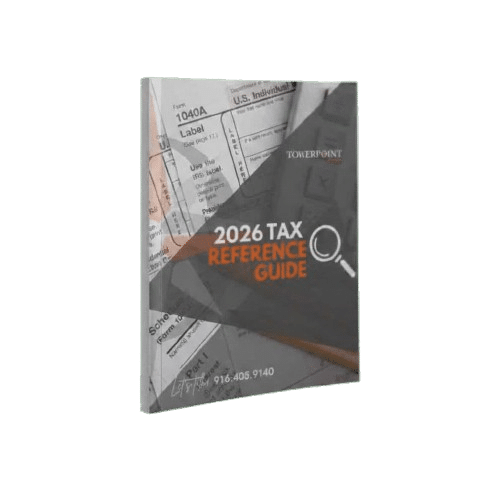For many high-net-worth individuals and wealthy families, philanthropy is a central part of their financial and personal legacy. Choosing the right charitable giving vehicle can help maximize impact, align with your charitable goals, and optimize tax benefits. In 2025, two of the most widely used philanthropic vehicles are the donor advised fund and the private foundation. While both are designed to support charitable purposes and qualified charities, they differ significantly in structure, tax deduction limits, control, costs, and administrative responsibilities. This guide provides a comprehensive look at the donor advised fund vs private foundation decision so you can make the best choice for your charitable giving goals.
Understanding the Basics

What Is a Donor Advised Fund?
A donor advised fund is a charitable giving vehicle administered by a public charity or sponsoring organization. When you make your initial contribution, which can include cash donations, cash equivalents, publicly traded securities, or illiquid assets, you receive an immediate tax deduction. Contributed assets grow tax free within the donor advised fund account, and you can make recommendations for grants to charitable organizations at your own pace. While you retain advisory privileges, the sponsoring charity has the final authority to approve grants. This arrangement provides a balance between flexibility, tax benefits, and reduced administrative tasks.
Donor advised funds offer a simple, cost-effective way to support multiple charitable organizations without having to set up a separate legal entity. The sponsoring organization handles investment options, compliance, federal tax returns, and reporting to the federal government agency that oversees charitable entities. It is important to note that a donor advised fund is not a deposit or a savings account, but rather a charitable vehicle designed exclusively for philanthropic purposes. The ability to grow tax free and make anonymous donations is appealing for donors who value privacy and efficiency.
What Is a Private Foundation?
A private foundation is an independent legal entity, typically established by an individual, family, or corporation, to pursue philanthropic goals. It is governed by a board or other governing body, which holds ultimate control over investment strategies, grant recipients, and charitable purposes. Unlike donor advised funds, a private foundation can provide direct donations to individuals in certain circumstances, operate its own charitable programs, and support private charities or other non-501(c)(3) initiatives with IRS approval.
Private foundations can be designed as perpetual entities or structured for spend-down strategies to meet specific charitable giving goals within a set timeframe. Family foundations are often created to ensure that the donor’s heirs can carry forward the family legacy of giving. However, they involve more start up costs, more ongoing administrative responsibilities, and legal implications that must be managed carefully. Some donors choose to work with tax advisors to navigate these complexities and optimize their charitable impact.
Tax Benefits – Maximizing Deductions and Impact

DAF Tax Benefits in 2025
In 2025, donor advised funds remain one of the most tax-efficient charitable giving vehicles. Donors can receive a charitable income tax deduction of up to 60% of adjusted gross income for cash contributions, and up to 30% of AGI for contributions of publicly traded securities or other long-term appreciated assets. These contributions often qualify for fair market value deductions, and donors can avoid capital gains taxes on the sale of appreciated assets. The cost basis deduction is generally available for certain assets contributed to private foundations, but donor advised funds typically allow fair market value deductions, which can be more advantageous.
Donor advised funds and private foundations both provide tax advantages, but the higher tax deduction limits for DAFs make them particularly attractive for donors seeking immediate tax deduction benefits. Additionally, donors can carry forward unused deductions for up to five years, providing further flexibility in managing their tax planning around charitable giving.
Because contributed assets in a donor advised fund account grow tax free, they have the potential to increase the charitable impact over time. This can be a powerful tool for donors who want to align investment strategies with philanthropic goals and anticipate future events that may affect their giving capacity or tax situation.
Private Foundation Tax Rules
Private foundations have lower tax deduction limits, up to 30% of adjusted gross income for cash contributions and 20% for appreciated assets. While they still allow fair market value deductions for certain asset types, there are more restrictions compared to donor advised funds. Additionally, private foundations are subject to an excise tax of approximately 1.39% on net investment income. Over time, this excise tax can reduce the foundation’s ability to grow tax free and can increase investment fees for larger portfolios.
However, private foundations provide ultimate control over grant-making, allowing donors to directly select grant recipients, set charitable giving goals, and manage investment options with the help of a financial advisor or investment advisor. For donors prioritizing control and legacy over maximum tax deduction, a private foundation can still be the best fit.
Cost and Complexity – The Hidden Workload

Administrative Simplicity of Donor Advised Funds
One of the key advantages of donor advised funds is the minimal cost and administrative workload. There are no start up costs beyond your initial contribution, and the sponsoring organization handles compliance, investment income reporting, and required filings with the federal government agency responsible for charities. This means you can focus on your philanthropic goals rather than administrative tasks. Donor advised funds and private foundations both require oversight, but advised funds are significantly simpler to manage. Many donors appreciate the ease of working with well-established organizations such as the National Philanthropic Trust, which offers robust support for donor advised funds.
Operational Demands of Private Foundations
By contrast, private foundations come with ongoing legal, tax, and operational requirements. They must file federal tax returns annually, disclose grants and investments publicly, and maintain records for all charitable donations. Administrative responsibilities can include staffing, governance meetings, compliance audits, and record-keeping for direct donations. Annual operating expenses can range from 2.5% to 8% of assets, depending on the size of the foundation and its programs. For some wealthy families, these costs are acceptable in exchange for full control and the ability to involve multiple generations in charitable giving.
Control, Flexibility, and Privacy

Donor Advised Fund Control and Limitations
With a donor advised fund, you have advisory privileges to recommend grants to qualified charities. The sponsoring charity has the legal authority to approve or deny these recommendations, but in practice, most are approved. This structure allows for anonymous donations and privacy in grant-making. For donors seeking to avoid public attention, this can be a significant advantage over private foundations, which must make their grant recipients and financial details public.
Private Foundation Governance
Private foundations give you ultimate control over mission, grant-making strategy, and investment options. You can involve your donor’s heirs in governance roles, ensuring a family legacy of giving. However, all grants, investments, and governing body details are part of the public record. While this transparency can enhance credibility, it also removes the possibility of anonymous donations.
Frequently Asked Donor Advised Fund vs Private Foundation Questions
Can I convert my private foundation into a donor advised fund?
Yes, many donors choose to convert private foundations to donor advised funds to reduce administrative burdens and benefit from tax free growth. The process involves transferring assets and obtaining necessary approvals, often with guidance from tax advisors.
Are donations to donor advised funds tax deductible immediately?
Yes, contributions to donor advised funds qualify for an immediate tax deduction, subject to tax deduction limits based on adjusted gross income and asset type.
Can donor advised funds invest in illiquid assets?
Some sponsoring organizations allow contributions of illiquid assets, but investment options within the fund may be limited compared to private foundations.
Do donor advised funds pay excise taxes on investment income?
No, donor advised funds do not pay excise taxes on net investment income, unlike private foundations.
Can donor advised funds make anonymous donations?
Yes, donor advised funds are unique in allowing donors to make grants anonymously, providing privacy not available with private foundations.
What happens to unused deductions if I don’t use them all in one year?
Donors can carry forward unused deductions for up to five years, allowing flexibility in tax planning.
Are donor advised funds considered a deposit or a savings account?
No, a donor advised fund is not a deposit; it is a charitable vehicle managed by a sponsoring organization for philanthropic purposes.
Conclusion
Choosing between a donor advised fund vs private foundation depends largely on your philanthropic goals, desired level of control, tax considerations, and willingness to manage administrative responsibilities. Donor advised funds offer a streamlined, cost-effective way to achieve tax free growth of charitable assets, benefit from immediate tax deductions, and maintain privacy through anonymous donations. They are well-suited for donors seeking flexibility and simplicity, often supported by reputable organizations like the National Philanthropic Trust.
Private foundations provide ultimate control over grant-making, investment strategies, and family legacy, but come with higher start up costs, ongoing administrative duties, and excise taxes on investment income. Working with experienced tax advisors and financial advisors can help you navigate the legal implications and optimize your charitable giving strategy for future events.
Ultimately, both charitable vehicles can play important roles in your philanthropic journey. Understanding their differences and aligning them with your charitable goals will empower you to make informed decisions that maximize your impact and legacy in 2025 and beyond.







